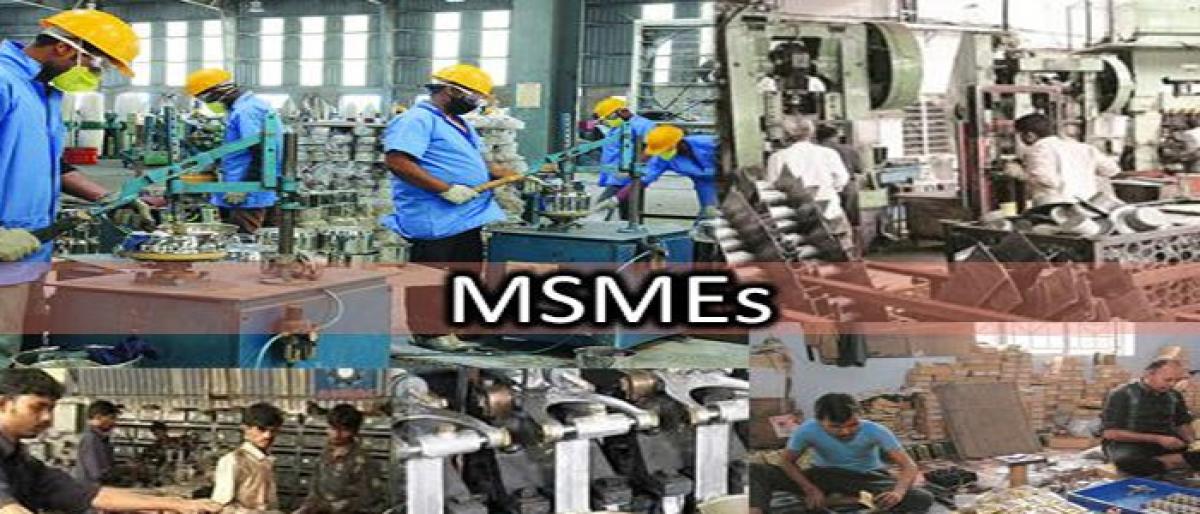PSUs fail to do more for small firms

Earlier this month, while addressing heads of central public sector enterprises (CPSEs), Prime Minister Narendra Modi exhorted them to procure more from micro, small and medium enterprises (MSMEs). “One of your aims should be to strengthen MSMEs,” he told them.
Earlier this month, while addressing heads of central public sector enterprises (CPSEs), Prime Minister Narendra Modi exhorted them to procure more from micro, small and medium enterprises (MSMEs). “One of your aims should be to strengthen MSMEs,” he told them.
PM Modi cited procurement figures for 2016, but if data for fiscal 2017-18 had been ready by then, he would have found that the share of procurement from MSMEs, in total, by 163 PSEs was 22.7 per cent – crossing the 20 per cent target set by the Public Procurement Policy for Micro and Small Enterprises order of March 2012. Not only that, there has been a steady improvement over the years. According to data from the MSME ministry, the share of MSMEs in total procurement in fiscal 2014-15 was only 11.61 percent (according to information from 133 CPSEs), in fiscal 2015-16 it was 13.53 percent (127 CPSEs) and in fiscal 2016-17 it was 17.96 percent (106 CPSEs).
Given this, did Modi really need to tick off CPSEs? Perhaps yes. Because this improvement, MSMEs will tell you, has come in the face of strong resistance from the CPSEs. The 2012 policy had given a three-year period from fiscal 2012-13 onwards for central government ministries and PSEs to gradually bring their procurement from MSMEs to 20 per cent of total procurement.
After this three-year period (that is from 1 April, 2015), the minimum 20 per cent share for MSMEs was mandatory. Yet, as the figures show, the target was crossed only in March 2018. Within this 20 per cent share, the policy had a 4 per cent carve-out for procurement from MSMEs owned by Scheduled Caste/Scheduled Tribes (SC/ST). The figures for 2017-18 show this was just 2.17 per cent. It was 0.05 per cent in 2014-15, 0.07 per cent in 2015-16 and 0.24 per cent in 2016-17).
At a recent MSME conclave organised by the ministry, a presentation by the Federation of Indian Micro Small and Medium Enterprises (FISME) highlighted the many ways in which CPSEs have been sidelining MSMEs, sometimes in clear violation of the 2012 policy.
For one, the policy says that the MSMEs should be provided with free copies of tender documents and exempted from depositing earnest money. However, CPSEs insist on small enterprises paying sundry tender fees. Often the tender processes are long drawn-out, which means the money gets locked up, something MSMEs can ill-afford. Several CPSEs, the FISME presentation pointed out, require annual vendor registration fees whether or not the small enterprises get orders. Some require separate product registration in addition, again for a fee.
The MSME ministry, for its part, has been trying to persuade CPSEs to waive the earnest money, but defence and oil PSEs insist on this, saying it keeps non-serious bidders away. The ministry has got some relief on the registration front for MSMEs, though. Earlier, any firm wanting to supply to a PSE needed to be registered with the National Small Industries Corporation (NSIC), even if it was registered with some other organisation. Since November, however, a firm already registered with either NSIC/Khadi and Village Industries Commission/Coir Board/Udyog Aadhaar need not register again.
Bid documents are also not simple and easy to understand, another issue that the ministry has been taking up repeatedly with CPSEs. Shyam Tiwari, Director of Subinfra Project Management, a project management firm that does advisory work for small enterprises, points out that these firms do not have the capacity to figure out lengthy programme documents, some of which do not mention the rebates or concessions small firms are supposed to get. They are left with only two choices – bow out of the tender or spend money on hiring consultants.
Then there are disabling technical criteria, where the bar is set much higher than what MSMEs can achieve. The issue, the ministry hastens to clarify, is not about diluting technical standards, but handholding and mentoring MSMEs. The 2012 policy also talks about vendor development programmes and buyer-seller meets, among other things, but the fact that Modi had to urge CPSEs to do more to help MSMEs shows this is not happening the way it was conceived.
The Dalit Indian Chambers of Commerce and Industry has requested that MSMEs, especially the SC/ST ones, be given some extra time to execute their contracts or, if they don’t have the required experience, be subject to strict tests before approval. How the CPSEs respond to this remains to be seen, given that the Prime Minister himself has spoken out on this.
Some PSEs also require their vendors to have expensive in-house testing laboratories, something small enterprises can just not afford. “When there are 3,000 testing laboratories across India, why should lack of in-house testing facilities be a disqualification,” FISME secretary general Anil Bhardwaj had asked at the conclave…
The 'Make in India' programme, which was supposed to provide a huge fillip to Indian industry, especially SMEs, has inadvertently worked against this section, FISME pointed out. There are high-value addition criteria, a low set-aside for SMEs and stringent pre-qualification rules that end up crowding out this segment. “Entry into PSEs and government departments is very difficult for MSMEs,” says Howale.
And after going through all these hurdles and getting contracts, MSMEs have to deal with delayed payments, which are often held up for more than a year… Why are there so many problems when there is a dedicated ministry for the MSME sector and a policy regarding public procurement?... Maybe that is why the Prime Minister raised the issue in his address. But if he is serious about wanting the MSME sector to thrive, he needs to get his ministers to address the issues that the small firms face.
By: Seetha














